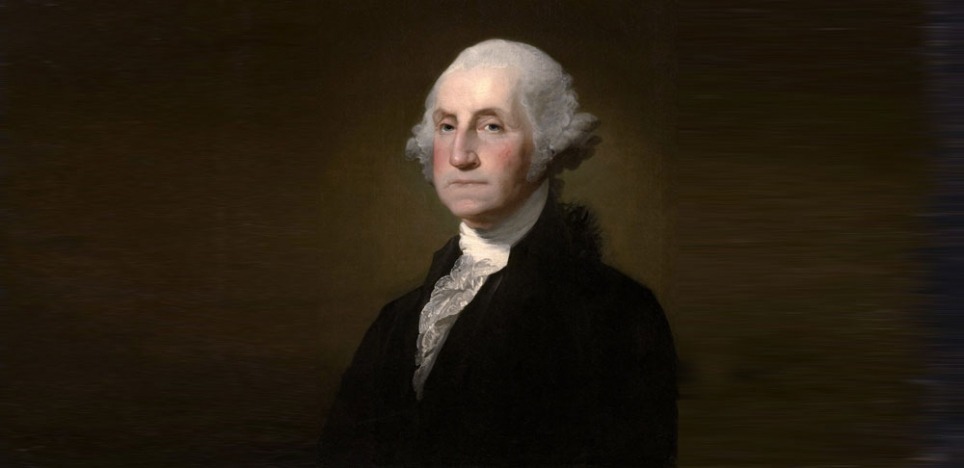Many Americans have strong and positive feelings about George Washington (1732-1799) as the "Father of Our Country," the leader of the colonists in the war for independence, and the first president of the new nation. The term most often associated with George Washington is "character," referring to his moral strength and attributes — patience, generosity, candor, civic-mindedness, and sense of duty.
In a four-volume biography of this multi-talented patriot, historian James Thomas Flexner stated, "George Washington became one of the noblest and greatest men who ever lived. But he was not born that way. He perfected himself gradually through the exercise of his own will and skill." Some of the many challenges Washington had to face include service in the Virginia militia during the French and Indian War, attending the Continental Congress, becoming Commander-in-Chief of the new Continental Army, coping with Benedict Arnold's betrayal, and struggling with his desire to end slavery. (In his will, he left directions for the eventual emancipation of his slaves after the passing of his wife Martha.)
Johann von Goethe, the German writer, believed that "character is best formed in the stormy billows of the world." American essayist Helen Keller went even further: "Character cannot be developed in ease and quiet. Only through experience of trial and suffering can the soul be strengthened, vision cleared. ambition inspired, and success achieved."
To Name This Day . . .
 Spiritual Practice
Spiritual Practice
Washington's birthday is a good time to ponder virtues that make people stand out from the crowd. In his book The Road to Character, David Brooks pays tribute to people who embody moral qualities and strong inner character. "Occasionally, even today," he writes, "you come across certain people who seem to possess an impressive inner cohesion. They are not leading fragmented, scattershot lives. They have achieved inner integration. They are calm, settled, and rooted. They are not blown off course by storms. They don't crumble in adversity. Their minds are consistent and their hearts are dependable. Their virtues are not the blooming virtues you see in smart college students; they are the ripening virtues you see in people who have lived a little and have learned from joy and pain.
"Sometimes you don't even notice these people, because while they seem kind and cheerful, they are also reserved. They possess the self-effacing virtues of people who are inclined to be useful but don't need to prove anything to the world: humility, restraint, reticence, temperance, respect, and soft self-discipline.
"They radiate a sort of moral joy. They answer softly when challenged harshly. They are silent when unfairly abused. They are dignified when others try to humiliate them, restrained when others try to provoke them. But they get things done. They perform acts of sacrificial service with the same modest everyday spirit they would display if they were just getting the groceries. They are not thinking about what impressive work they are doing. They are not thinking about themselves at all. They just seem delighted by the flawed people around them. They just recognize what needs doing and they do it.
"They make you feel funnier and smarter when you speak with them. They move through different social classes not even aware, it seems, that they are doing so. After you've known them for a while it occurs to you that you've never heard them boast, you've never seen them self-righteous or doggedly certain. They aren't dropping little hints of their own distinctiveness and accomplishments.
"They have not led lives of conflict-free tranquility, but have struggled toward maturity. They have gone some way toward solving life's essential problem, which is that, as Aleksandr Solzhenitsyn put it, 'the line separating good and evil passes not through states, nor between classes, nor between political parties either — but right through every human heart.'
"These are the people who have built a strong inner character, who have achieved a certain depth. In these people, at the end of this struggle, the climb to success has surrendered to the struggle to deepen the soul. . . . These are the people we are looking for."
What abilities do you see in people who are especially strong, mature, or wise? Name and describe a person you admire who has great character.
 Quotes
Quotes
These quotes by George Washington lay out some of the values he labored to embody. Choose one that you would like not only to remember but to live by today.
"Be courteous to all, but intimate with few, and let those few be well tried before you give them your confidence."
"Guard against the impostures of pretended patriotism."
"Labor to keep alive in your breast that little spark of celestial fire called conscience."
"Perseverance and spirit have done wonders in all ages."
"Happiness depends more upon the internal frame of a person’s own mind, than on the externals in the world."
"Let your heart feel for the afflictions and distress of everyone."
